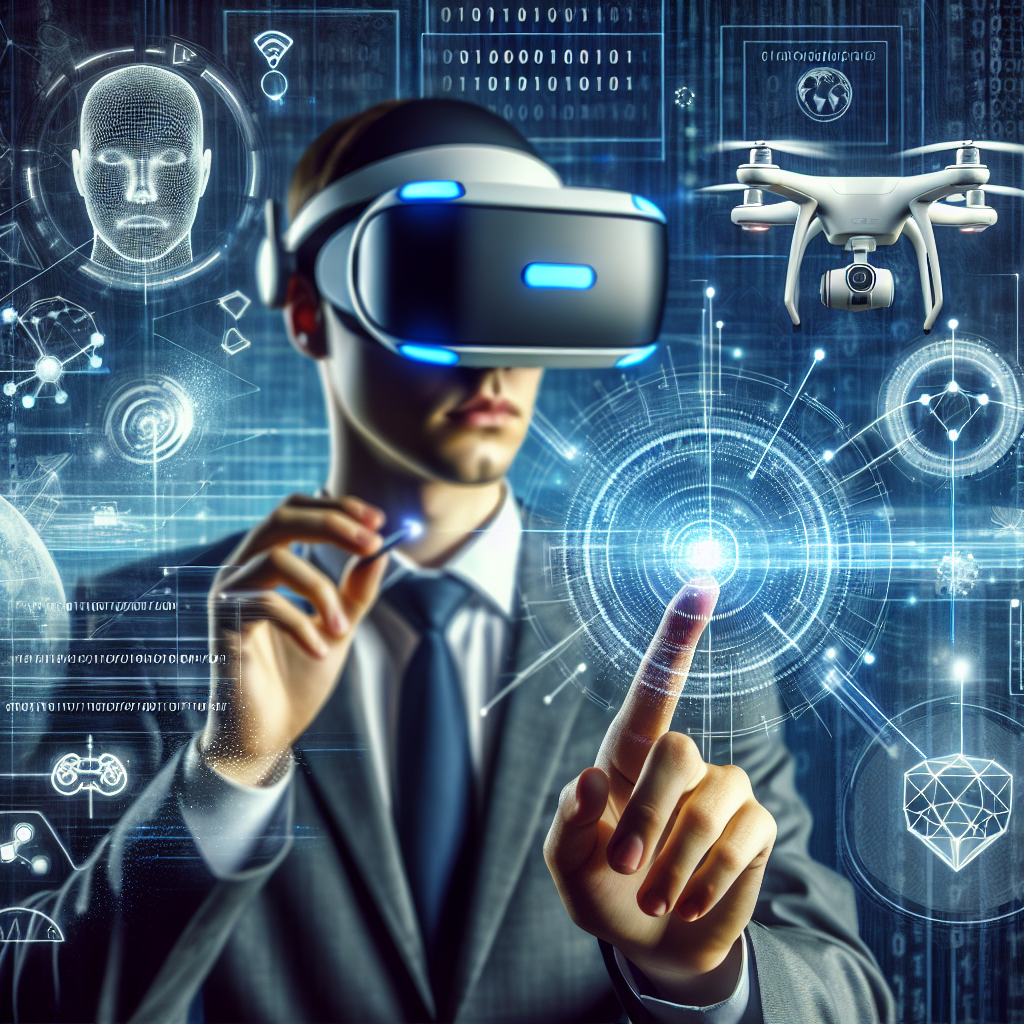Virtual reality (VR) and artificial intelligence (AI) are two rapidly evolving technologies that have the potential to revolutionize the way we experience entertainment. When combined, VR and AI can create immersive experiences that blur the lines between reality and virtual worlds, offering users a truly unforgettable and engaging experience.
Virtual reality technology allows users to immerse themselves in a computer-generated environment, using a headset and motion-tracking sensors to simulate a realistic and interactive experience. AI, on the other hand, refers to the development of machines and software that can perform tasks that typically require human intelligence, such as speech recognition, decision-making, and problem-solving.
When VR and AI are combined, the possibilities for entertainment are endless. AI can be used to create intelligent characters and NPCs (non-playable characters) that can interact with users in a more realistic and dynamic way. For example, AI-powered NPCs can adapt their behavior and responses based on a user’s actions and choices, creating a more personalized and engaging experience.
Additionally, AI can be used to enhance the realism of VR environments by generating dynamic and responsive content. For example, AI algorithms can be used to create lifelike animations, realistic physics simulations, and procedurally generated worlds that react to user input in real-time.
One of the most exciting applications of VR and AI in entertainment is the development of virtual assistants and guides that can help users navigate virtual worlds and provide assistance and information. These virtual assistants can be powered by AI algorithms that can understand natural language, recognize gestures, and respond to user queries in real-time.
Another area where VR and AI are making a significant impact is in the field of gaming. AI-powered NPCs can provide users with more challenging and realistic opponents, making gameplay more engaging and immersive. Additionally, AI algorithms can be used to create personalized gaming experiences by analyzing user behavior and preferences to tailor gameplay to individual players.
In the world of virtual reality, AI can also be used to enhance the overall user experience by optimizing performance, reducing latency, and improving graphics quality. AI algorithms can analyze user feedback and behavior to make real-time adjustments to the VR environment, ensuring a smooth and seamless experience for users.
Furthermore, AI can be used to create more immersive and realistic audio experiences in VR environments. AI algorithms can generate spatial audio that reacts to user movements and interactions, creating a more immersive and realistic sound environment.
Overall, the combination of VR and AI has the potential to transform entertainment experiences, offering users a truly immersive and engaging experience that blurs the lines between reality and virtual worlds.
FAQs:
1. How is AI used in virtual reality?
AI is used in virtual reality to create intelligent characters and NPCs, enhance the realism of VR environments, develop virtual assistants and guides, optimize performance, improve graphics quality, and create immersive audio experiences.
2. What are some examples of AI-powered entertainment experiences in virtual reality?
Some examples of AI-powered entertainment experiences in virtual reality include intelligent NPCs that can interact with users, personalized gaming experiences, virtual assistants that help users navigate virtual worlds, and immersive audio experiences with spatial sound.
3. How does AI enhance the overall user experience in virtual reality?
AI enhances the overall user experience in virtual reality by optimizing performance, reducing latency, improving graphics quality, creating personalized gaming experiences, and generating immersive audio experiences.
4. What are the potential benefits of combining VR and AI in entertainment?
The potential benefits of combining VR and AI in entertainment include creating more immersive and engaging experiences, offering personalized and interactive content, enhancing realism and interactivity, and providing users with a truly unforgettable entertainment experience.

